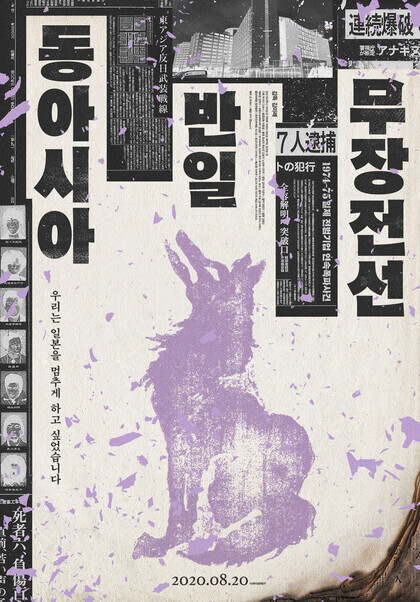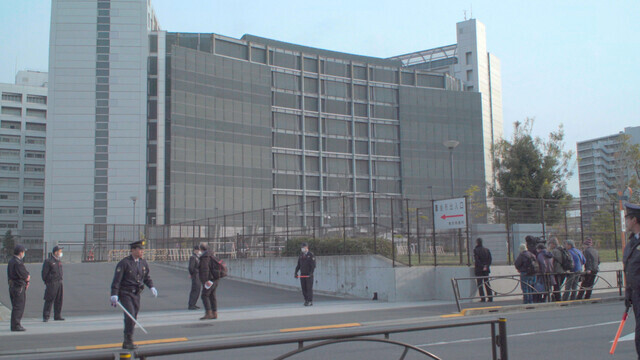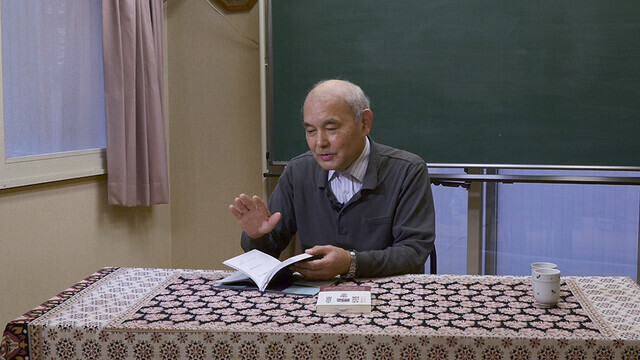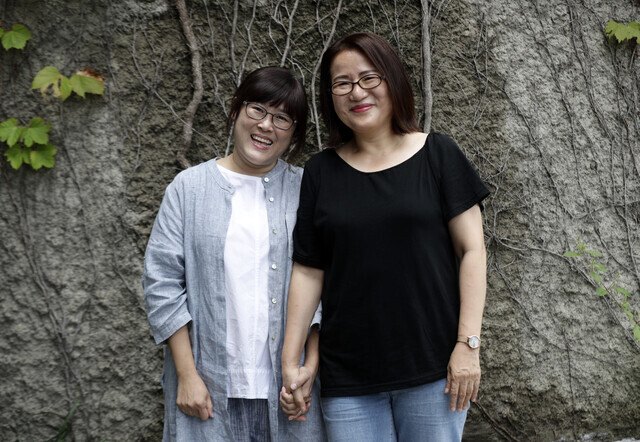hankyoreh
Links to other country sites 다른 나라 사이트 링크
[Film review] The story of anti-imperialist Japanese who bombed Mitsubishi in 1974

On Aug. 30, 1974, a bomb exploded at the headquarters of Mitsubishi Heavy Industries, in Tokyo, killing eight people and injuring 376. The incident stunned Japanese society. A month later, a group called the East Asia Anti-Japan Armed Front issued a statement: “Mitsubishi has continued to serve as a key servant of Japanese imperialism from the colonial era until the present day. Under the mask of running a business, the company gnaws on corpses.”
The members of this group — the first in postwar Japan to wage a campaign of terrorism to demand that the Japanese take responsibility for its colonial rule — were actually Japanese.
Through the following May, the group detonated a series of bombs at eight Japanese companies that had been complicit in war crimes during World War II, including Mitsui & Co. and Taisei Corporation. Fortunately, no one was killed or injured in those bombings. The group’s goal was not killing people but raising awareness. Eight people were arrested and imprisoned in connection with the bombing, including Masashi Daidoji. The members of the group ranged from college dropouts to office workers: in short, ordinary members of society. As of today, two members of the group remain in prison, with the others either dead or released, but Japanese society does its best to ignore them. Even in South Korea, few are aware of the incident.

A documentary about the incident, “The East Asia Anti-Japan Armed Front,” named after the group it covers, will be released in theaters on Aug. 20. It’s the latest piece by Kim Mi-rye, who has consistently dealt with labor issues in “Nogada,” meaning “construction worker,” which won the independent film prize in 2005, and “Stayed Out Overnight,” which covered a strike by workers at a hypermarket.
“While I was researching activists on the issue of day laborers in the Japanese construction industry in the early 2000s, I heard about the East Asia Anti-Japan Armed Front, but I didn’t manage [to look into that issue] at the time. It was only after the labor movement lost steam, followed by the intense feelings of helplessness and defeat in the wake of the Sewol tragedy in 2014, that I returned to this forgotten incident, with the hope of overcoming [those feelings],” Kim told the Hankyoreh in a recent interview.

Kim got in touch both with the incarcerated group members and activists who are supporting those who have been released. Even though the group members were largely portrayed as heinous terrorists at the time of the incident, some Japanese citizens sympathized with the purpose that had driven the group to such extreme action.
“Even after World War II, Japanese imperialism was not liquidated but instead manifested in the form of economic colonialism. That criticism remains valid in the present day, when companies guilty of war crimes have set up operations in countries around the world,” said Masakuni Ota, one of the supporters of the group members, in a video interview with reporters following a press screening of the film.
“While South Korea-Japan relations aren’t positive right now, efforts to show solidarity and engage in dialogue continue among the masses at the grassroots level,” Ota said.
While making the film, Kim found herself ruminating over the nature of being an oppressor. “It’s painful to acknowledge that one is the cause of oppression, but nevertheless those group members achieved that recognition and sounded the alarm in society. The film made me consider whether we too might be oppressors and what action should be prompted by that recognition,” she said.

The film prompted some to call for introspection about the oppression inherent in everyday routines. “To take one example, we shouldn’t forget that the fresh vegetables we eat early in the morning and our subway commute are propped up by the onerous schedule of delivery workers and by the sacrifices of subway workers. We need to realize that the stratification of power that’s rampant in the Korean labor market is no different, structurally speaking, from empires that plunder other countries, and we must make an effort to resolve that,” said Shim A-jeong, an independent researcher and activist.
By Suh Jung-min, music correspondent
Please direct comments or questions to [english@hani.co.kr]

Editorial・opinion
![[Editorial] Does Yoon think the Korean public is wrong? [Editorial] Does Yoon think the Korean public is wrong?](https://flexible.img.hani.co.kr/flexible/normal/500/300/imgdb/original/2024/0417/8517133419684774.jpg) [Editorial] Does Yoon think the Korean public is wrong?
[Editorial] Does Yoon think the Korean public is wrong?![[Editorial] As it bolsters its alliance with US, Japan must be accountable for past [Editorial] As it bolsters its alliance with US, Japan must be accountable for past](https://flexible.img.hani.co.kr/flexible/normal/500/300/imgdb/original/2024/0417/6817133413968321.jpg) [Editorial] As it bolsters its alliance with US, Japan must be accountable for past
[Editorial] As it bolsters its alliance with US, Japan must be accountable for past- [Guest essay] Amending the Constitution is Yoon’s key to leaving office in public’s good graces
- [Editorial] 10 years on, lessons of Sewol tragedy must never be forgotten
- [Column] A death blow to Korea’s prosecutor politics
- [Correspondent’s column] The US and the end of Japanese pacifism
- [Guest essay] How Korea turned its trainee doctors into monsters
- [Guest essay] As someone who helped forge Seoul-Moscow ties, their status today troubles me
- [Editorial] Koreans sent a loud and clear message to Yoon
- [Column] In Korea’s midterm elections, it’s time for accountability
Most viewed articles
- 1[Column] The clock is ticking for Korea’s first lady
- 2Samsung barricades office as unionized workers strike for better conditions
- 3[Editorial] When the choice is kids or career, Korea will never overcome birth rate woes
- 4S. Korea, Japan reaffirm commitment to strengthening trilateral ties with US
- 5[News analysis] After elections, prosecutorial reform will likely make legislative agenda
- 6Japan officially says compensation of Korean forced laborers isn’t its responsibility
- 7Why Israel isn’t hitting Iran with immediate retaliation
- 8[Editorial] As it bolsters its alliance with US, Japan must be accountable for past
- 9[Editorial] Does Yoon think the Korean public is wrong?
- 10[Guest essay] How Korea turned its trainee doctors into monsters